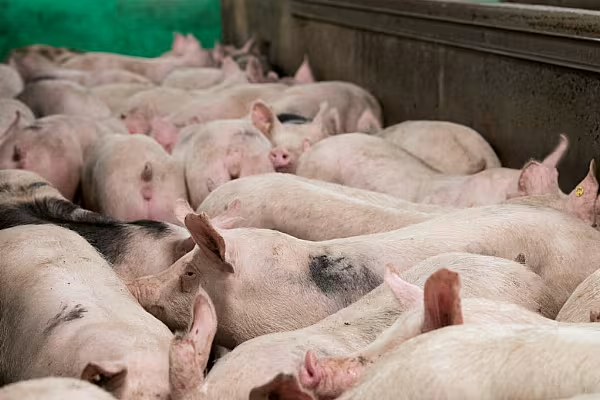A German abattoir and meat packing group at the centre of a coronavirus outbreak said that it would hire 1,000 workers and stop using sub-contractors for animal slaughtering and meat processing.
German slaughterhouses have faced criticism for the widespread use of subcontracted migrant workers from eastern Europe, with cramped accommodation suspected of contributing to coronavirus outbreaks in abattoirs.
Tönnies said it was starting a pilot project to directly employ 1,000 staff in slaughtering and meat packing by 30 September as part a plan to end all sub-contracting in slaughtering in meat processing by the end of this year.
Meeting 'Demands Of Politics And Society'
The changes are the first in a series, and show the Tönnies group is taking the demands made on it seriously and working at speed "to meet the demands of politics and society", said managing partner Clemens Tönnies in a statement.
German labour minister Hubertus Heil has condemned the system of 'sub-sub-sub-contracting' in abattoirs - where subcontractors sometimes relied on other subcontractors to get staff - and is introducing a new law compelling meatpackers to employ staff directly.
Tönnies' Rheda-Wiedenbrueck plant normally slaughters and processes 12% to 14% of Germany's pigs and is one of 19 meatpacking plants in the country owned by the group.
Tönnies faced criticism from German authorities in June as it was unable to immediately provide addresses of sub-contracted workers after the coronavirus outbreak at the plant.
The Guetersloh local government authority is still in negotiations about a hygiene plan with the plant, which has provisionally been ordered to close up to 17 July.











